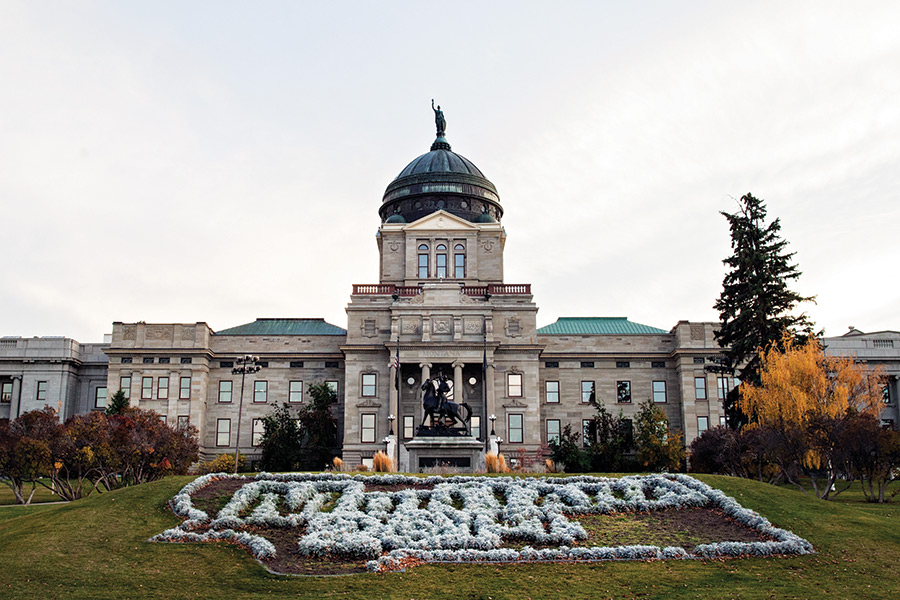HELENA — Republican legislative leaders said Wednesday they will seek to reduce government agency spending by $120 million, with cuts that would go much deeper than what is in Democratic Gov. Steve Bullock’s budget plan.
Bullock is proposing $74 million in cuts across state agencies, plus tax hikes and one-time transfers to balance the two-year state budget and build its surplus to $300 million by 2019.
Senate Finance and Claims Chairman Llew Jones, R-Conrad, said many of those tax hikes and transfers are unrealistic with a Republican-led Legislature that must pass the 2017-2019 state budget. Instead, Jones and House Appropriations Chairman Nancy Ballance are targeting $120 million in spending cuts as a starting point for the two-year plan.
“What we have to do will not be pleasant. It will be difficult,” Jones said in a joint meeting of the two committees.
The biggest cuts would include $37 million to the Department of Public Health and Human Services and $24 million to the Office of Public Instruction.
Democratic lawmakers are questioning how such cuts will affect jobs, programs and services on which Montana residents rely. Sen. Mary Caferro, D-Helena, noted that the proposed health department cuts are understated because they don’t include how the reductions would affect federal funding for Montana.
“It’s going to be a lot more when you lose the federal match,” Caferro said.
Jones acknowledged that the budget decisions made in the next months of the legislative session will affect Montanans, but he said they still have to be made.
The taxes collected by the state last year came in below expectations, while state spending rose. That has put state budget writers in a position of having to cut spending or find new ways to raise revenue, or a combination of both, to meet the constitutional requirement of a balanced budget.
Bullock is proposing to shore up revenue with a new income tax rate for the wealthy, along with a tax on medical marijuana and tax hikes on tobacco and wine sales. Jones called the income tax plan unrealistic and the other taxes unlikely.
Revenues are forecast to pick up again by 2019, but that doesn’t help the immediate budget crunch, Legislative Fiscal Director Amy Carlson told the committees.
The House Appropriations Committee plans to initiate the cuts by bringing state agency heads before the panel on Thursday to ask them to voluntarily identify and turn over any unspent money in their current budgets.
Those agencies’ next budgets would be reduced by that amount, and the cash turned over will go toward the 2017 ending fund balance, Republican legislative leaders said. Those agencies who voluntarily comply will have 30 percent of that money returned in 2019, when revenues are expected to improve.
“We’re asking the agencies to take a look within their remaining expenditures to see if there’s anything they can put off,” Ballance said.
Bullock budget director Dan Villa was not available to comment on Wednesday. Bullock spokeswoman Marissa Perry said agency officials will cooperate with the Legislature by providing lawmakers with whatever information they need. But the administration does not plan to offer spending reductions beyond what’s in the governor’s proposed budget, she said.
“We’re drawing a very firm line that these cuts aren’t necessary,” Perry said.
Jones said he hopes for cooperation in the process, but if there isn’t, that will make the cuts more difficult.
